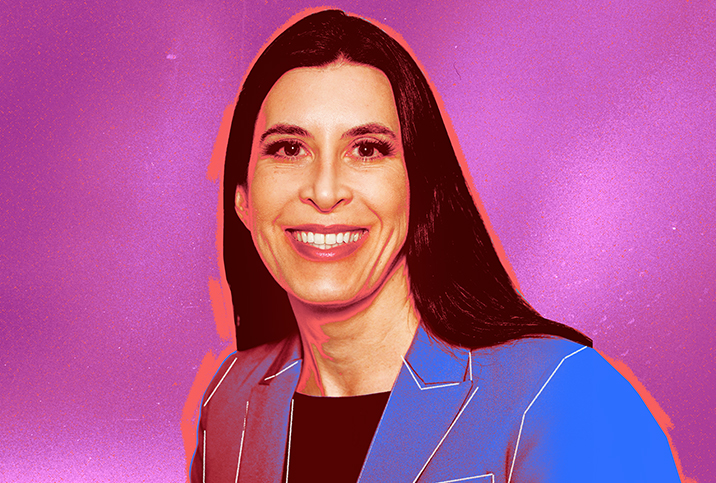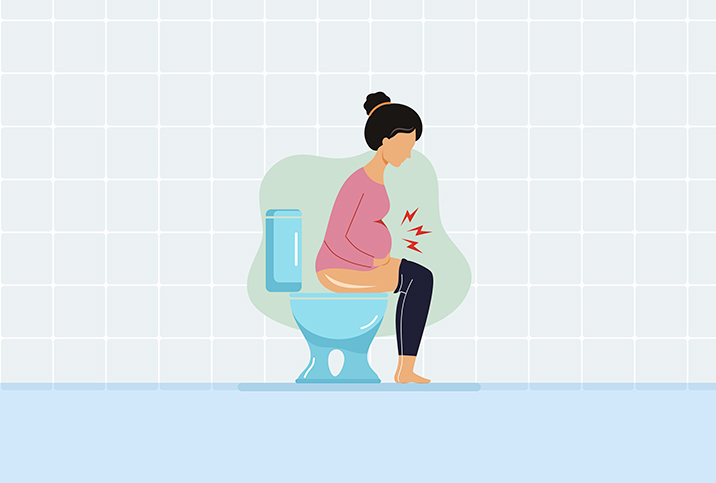Between the Pages: 'Challenging Pregnancy'

Approximately 8 percent of pregnancies involve complications that, if left untreated, put the pregnant person or fetus at risk, according to Johns Hopkins Medicine. The healthcare system in the United States can make it difficult to receive the necessary care when complications arise, as Genevieve Grabman, J.D., M.P.H., knows all too well.
When Grabman was pregnant with identical twins, she learned they had a rare condition called twin-to-twin transfusion syndrome (TTTS), a serious complication that occurs when abnormal blood vessel connections in the placenta cause blood to flow unevenly between the fetuses, leading to myriad health issues. TTTS develops in an estimated 5 percent to 15 percent of identical twin pregnancies.
Fortunately for Grabman, her twins survived. In her book, "Challenging Pregnancy: A Journey Through the Politics and Science of Healthcare in America" (Iowa University Press, April 2022), Grabman recounts her harrowing pregnancy and discusses how her healthcare choices were limited by anti-abortion politics and the religious restrictions of the hospitals that provided her care.
Grabman, an attorney for United Nations agencies in Washington, D.C., gave an exclusive interview to Giddy. She provides an inside look at her book and why she wrote it, and explains how current Supreme Court cases may affect women with pregnancy complications, and what she hopes readers gain from her story.
When you were pregnant with very sick twins, how were your medical options limited and why?
Grabman: When I was pregnant with twins who suffered from both twin-to-twin transfusion syndrome and selective intrauterine growth restriction, anti-abortion politics and religious intrusion limited my medical options.
A best-case scenario for my pregnancy was that one twin could survive and be born neurologically healthy. My doctors, therefore, advised that I undergo surgery to separate the fetuses' blood vessels, which had connected. The risk of this surgery was that one fetus would survive it and the other fetus would not.
Concerned about the ethics, and cowed by the political repercussions, of aborting one of the fetuses, three hospitals denied my surgeons' requests to conduct fetal surgery. That option gone, I was discharged to a maternal-fetal specialist whose office was at a Catholic hospital. That doctor determined that the best, most sure, healthiest course of action would be to terminate the pregnancy at 21 weeks. However, his hospital employer prohibited my doctor from giving me this advice or helping me.
My doctor took me into a hallway and whispered his suggestion that I terminate my pregnancy. He offered to slip me an address of a clinic that could conduct the termination. But he could not arrange that medical care for me.
What role does the current Supreme Court case Dobbs v. Jackson Women's Health play for women facing a situation similar to yours?
At issue in Dobbs is whether states may constitutionally limit pre-viability abortions. Pre-viability. Before the fetus is viable. Likely, the Supreme Court will overturn Roe v. Wade and rule that states may prohibit any and all abortions, even if the fetus could not be born alive, and even if the fetuses are dying, as mine were, and are imperiling the life of the pregnant person carrying them.
Such a ruling will force pregnant people—with wanted pregnancies—to wait and wait to see who will survive their pregnancy. In essence, the Supreme Court will order months of torture and anguish on women facing a situation similar to mine.
How does the intertwined nature of medicine and politics in the U.S. affect doctors' ability to care for people with high-risk, complicated pregnancies?
Pregnancy is a high-risk event, with pregnancy-related causes being the primary source of death of women in most developing countries. Abortion access is what improved developed countries' maternal death rate.
Maternal-fetal medicine, and especially fetal surgery, is [one] of the most specialized [areas] of medicine. After medical school, doctors in these specialties undergo years more of training. Because the science around fetal development is evolving—and has evolved even since I wrote my book, as I explain in the work's epilogue—physicians must react to the most current understanding of how to care [for] the pregnant person and fetuses for health outcomes.
Politicians do not have the training or understanding of science around maternal-fetal medicine. And law is too inflexible of an instrument to respond to the risk and variation presented by pregnancy. When politics interferes with medicine, it restricts physicians from using their training, tools and abilities in the service of their patients.
What is your vision for how pregnant people should be treated by the U.S. political and medical systems?
My vision is that the pregnant person's humanity and wishes be the paramount concern of U.S. political and medical systems.
Currently, and in many states, a pregnant person loses agency over her own self because she is pregnant. If she is brain dead, the pregnant person may be kept alive against her own written wishes to serve as an unwilling incubator for her fetus. I cannot believe that Americans regard 51 percent of [the] population with such contempt.
How are you and your twins now, and what have you learned from your experience?
My twins and I are OK, mostly. My core muscles are still separated and I'm still anemic six years after giving birth! And one of my twins has some developmental delays. But after a rough start, it all turned out well for us.
What's the main takeaway you hope readers gain from your book?
I beg my readers to think: What do we want for our society, and for each of us, when we seek medical care? Do we wish to be respected and listened to by our doctors? Or do we want politicians who don't know us and don't understand medicine nevertheless to decide the outcomes of our medical cases?
I hope that readers decide that all Americans deserve personalized, respectful, accessible medical care. I ask readers to demand that their state politicians do not restrict medical care available to any American.


















